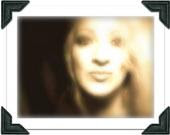One of the most puzzling, exasperating and enduring mysteries from the film Excalibur, is quite simply, what is meaning of the Charm of Making! Countless people have learned the charm and it has been spoken at many a sacred ceremony. But the meaning remains as elusive as the fog.
There are those who claim that the Charm of Making is spoken in Old Irish. But there are problems in a making a literal translation.
Perhaps Old Irish was the starting point in developing the words and they were changed to get the "right sound" for the film
What follows is the best interpretation and explanation of the Charm of Making I have seen.
This information information has been provided by Michael Everson. Please visit his Everson Typography Website
Merlin's Charm of Making
I sent this note out to a number of internet lists some years ago in response to a query I received.
The mystery of Merlin's Charm of Making is, alas, no longer a mystery. Although Merlin and Morgana both pronounce things differently from each other, and even Merlin has two sounds which to me sound like phonemes but which must be allophonic, I get the following from the Charm of Making in John Boorman's film Excalibur:
/ana:l nathrakh, u:rth va:s bethud, dokhje:l djenve:/
It's not Welsh! It looks very much like an attempt at Old Irish. (One wonders where Boorman got it.) Following is the best I can do at reconstructing reasonable Old Irish from it. I have normalized to Modern Irish orthography to indicate lenition.
In Old Irish
Anál nathrach, orth' bháis's bethad, do chél dénmha
In Modern Irish:
Anáil nathrach, ortha bháis is beatha, do chéal déanaimh
In English:
Serpent's breath, charm of death and life, thy omen of making.
anál nathrach = breath of serpent
orth' bháis 's bethad = spell of death and of life
do chél dénmha = thy omen of making
anál fem. -á stem 'breath, breathing'
nathair fem. -k stem 'snake, serpent' g. sg. nathrach
ortha fem. -n stem 'prayer; incantation, spell', from Latin oratio
bás mas. -o stem 'death' g. sg. báis
ocus conj. 'and' here shortened to 's
betha mas. -t stem 'life' g.sg. bethad
do prn. 'thy' Usually unstressed
cél mas. -u stem 'omen, augury, portent'
dénumh mas. -m stem 'making, doing.' g.sg. dénmha
Modern Irish would have the -is in bháis as a /sh/ sound, but it might not have been so palatalized in the Old Irish period; and the nonpalatal 's of 'and' ought to reinforce that. The third part of the charm could also be dochél dénmha 'an evil omen of making,' but that suits the sense badly. The word do 'thy' is usually unstressed in speech but what can you do...
Note that Merlin says dénmhe, which ought to be dénmha; perhaps there is some sort of 'incantation register' in which a final vowel can be altered in this way.... In any case, I am less than happy with the third part of this. I'd like to have seen an iperative or hortative, but verb-first syntax precludes even dénae, the imperative of do-gní (from which the verbal noun dénumh is formed), which anyway doesn't have the nominal formative -mh.
I forwarded this file to CELTIC-L, WELSH-L, GAELIC-L SF-LOVERS and LINGUIST as it is of linguistic, cultural and cult-film interest. I would be interesed in hearing from specialists in Old Irish as to their opinions of this. There are other possibilities for the retro-translation, and indeed the use of a Latin loanword, given the context, is problematic.
Michael Everson, everson@egt.ie, Baile Átha Cliath, 1997-03-20
7/21/2005
The Charm of Making
Subscribe to:
Post Comments (Atom)





No comments:
Post a Comment